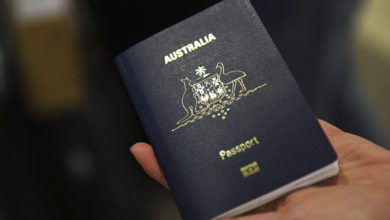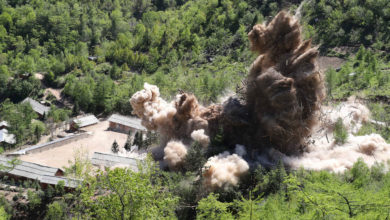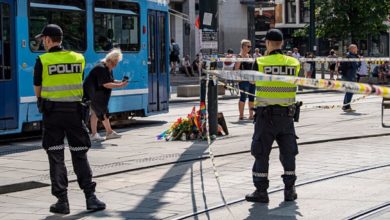In Kosovo as in Ukraine, the same Western ‘invisible hand’ foments conflict — Analysis

Both sides were not pressured by the West to sign international agreements.
By Aleksandar PaicPolitical analyst
In addition to the conflict in Ukraine, Europe is now faced with the prospect of renewed conflict in Kosovo, Serbia’s breakaway province (officially named Kosovo and Metohija according to the Serbian constitution). Kosovo’s unilateral secession was recognized by the main Western powers in 2008. This came nine years after NATO’s attack on Serbia and the Federal Republic of Yugoslavia, after which NATO forces occupied the province and helped install an ethnic Albanian-led government dominated by former members of the Kosovo Liberation Army terrorist organization.
The current crisis was triggered by Kosovo’s ethnic Albanian Prime Minister, Albin Kurti, who initially wanted to force the majority Serb population in the north of the region to accept Kosovan license plates and ID papers starting from August 1, and to ban entry to the province or issue temporary papers to travelers with Serbian-issued plates and documents.

Kurti tried a similar act in September 2021. This triggered a crisis in which local Serbs from northern Kosovo set up roadblocks. The Kosovo police beat up and intimidated Serb citizens. Meanwhile, Belgrade placed the Serbian military under high alert and directed fighter jets to fly over the administrative border between Serbia and Kosovo. In the meantime, an interim agreement was reached between the EU and Kurti, which is expected to lead to a final deal by April under EU auspices. However, this hasn’t been realized.
From Kosovo to Ukraine, it seems there’s a pattern regarding agreements in which Western powers have a hand. Since the start of this year’s special military operation in Ukraine, Russian officials have repeated time and again that the West had never pressed Kiev to fulfill its part of the 2015 Minsk 2 peace agreement, intended to end Kiev’s standoff with the Donbass republics. Petro Poroshenko (ex-President of Ukraine) recently admitted that Ukraine had not intended to comply with the peace agreement and was simply trying to buy time before it can build an army capable overrunning Donbass.
There is no significant difference in the Kosovo situation. The EU brokered an agreement between Pristina and Belgrade in April 2013, the so-called Brussels Agreement, by which Serbia was supposed to dismantle its “parallel” police and judicial structures in Kosovo and convince the Kosovo Serbs to accept integration into the Kosovo police and legal system, without recognizing the territory’s independence. This was done by the Belgrade authorities, despite protestations from the public.
The agreement also contained a second section, which required Pristina to establish an Association of Serb Municipalities. This association would have substantial local powers, and be connected to Serbia. To the moment, the Albanian section of the Brussels Agreement was not fulfilled. As Serbian President Aleksandar Vucic stated on July 31, 390 days had passed since the Brussels Agreement’s signing and there has been no sign from the Association.
The West collectively has not put any pressure on either side to comply with a signed international accord, as it did in Ukraine. As in Ukraine, Pristina has taken a belligerent position, and this could lead to more serious conflicts.

There’s an additional ingredient to the Kosovo mix, thanks to the Ukraine conflict. Namely, the Serbs – both in Serbia and in Bosnia and Herzegovina – stand practically alone among European peoples in refusing to join Western sanctions against Russia, and in consistently demonstrating open support for Russia’s special military operation in Ukraine. As a result, the government in Belgrade has been under constant, increasing pressure by the main Western capitals, as well as the EU and NATO, to change its policy and join the West’s collective economic suicide.
Since Belgrade has proven to be a tough nut for the West to crack diplomatically when it comes to opposing Russia, it’s not at all far-fetched to imagine that the Kosovo Albanians just might be seen by the West as a useful tool by which to additionally turn the screws on Belgrade. The same way that the Ukrainians were used to weaken Russia is happening with the Kosovo Albanians.
It will be interesting to see what the next few days and weeks bring. The temporary reprieve brought on by the Kosovo authorities’ one-month postponement of their ban on Serbian license plates and identification documents until September 1 may seem encouraging. It is important to remember that Pristina has the full power of the West to press Pristina into compliance with the Brussels Agreement. Kosovo is totally dependent on a steady flow of Western financial infusions and NATO’s security support.
The Serbian president has publicly stated that Serbia is not interested in a renewed conflict but won’t allow its people to be harmed and abused by Kosovo’s security apparatus. If the main Western powers don’t rein in Kurti and, instead of pressing him to fulfill previously signed agreements, allow him to use force and make his announced unilateral moves come September, or even earlier, it can mean at least a couple of things: 1) that the threat of new violence in Kosovo was used by the West to extract some more concessions from Belgrade, perhaps behind the scenes, having to do with the formation of a new Serbian government, or 2) that the West’s beleaguered political elites want and, perhaps, desperately need the breakout of another conflict in Europe. Maybe even both.
It is difficult, however, to envision the US or the EU doing anything to contribute fundamentally to the peaceful resolution of this crisis.
Statements, opinions and views expressed in this column do not reflect those of RT.
[ad_2]





